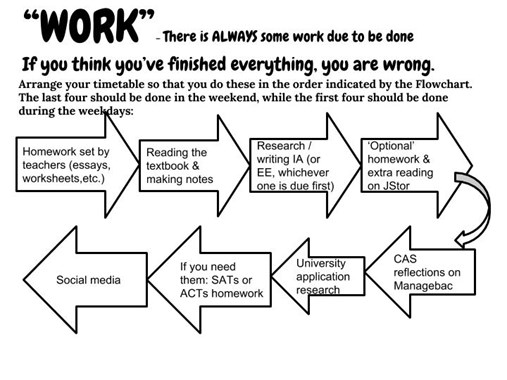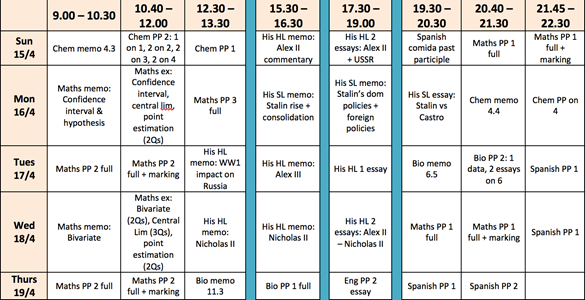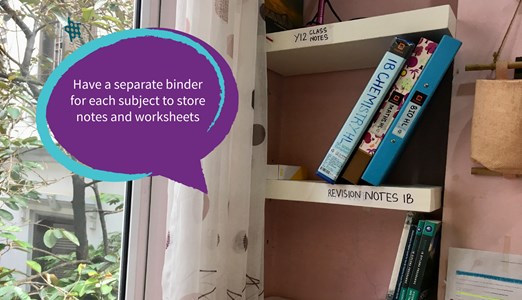Finish homework on the day that it is set, one extra task today means one less task tomorrow

Finish homework on the day that it is set, one extra task today means one less task tomorrow
Finish homework on the day that it is set, one extra task today means one less task tomorrow
PART II: GENERAL STUDY HACKS TO ACHIEVE A HIGH SCORE IN IB – MANAGEBAC IS YOUR SNAPCHAT
You study 6 subjects in the IB Diploma – 3 subjects at Standard Level and 3 subjects at Higher Level. You also have to complete the Core components – Theory of Knowledge, CAS and a 4000-word Extended Essay – which are mandatory for all students. These were my choices:
The highest possible score for any IB subject is a 7. I achieved 7’s in all of my subjects, and a 6 in English Literature SL. Below are general pieces of advice that could be (and should be) applied to every subject. These are roughly arranged in order, with 1 being the easiest and most fundamental. You do not need to practice all of these all the time, but it is important that you are able to do all of them.

This means that you need to finish time-tabling your revision BEFORE you start the actual revision. I recommend at least 3-4 hours of revision each evening after getting home from school, and another 4 hours in the morning (during the weekends). I have included a sample schedule of my own, for your reference.

(If possible) Buy your own copy of the official textbooks so as you don’t have to carry them from home to school.


7. Read your textbooks, not exam guide: Exam guides are helpful, but only for summarising the content. To make sure that you have covered every single bullet point in your syllabus, read and make notes from the textbook. You will soon find out that due to time constraints, the teachers will not be covering everything you need to know for your exams during lesson time. It is therefore essential that you learn to self-teach yourself certain things, and the safest place to get IB-standard knowledge is the textbook itself.

8. Take PCTs (Progress Check Tests) seriously: The majority of you will be applying to university using predicted grades, which will be given based on your most recent PCT’s score. PCTs are an extremely helpful replica, and you will become so used to a cycle of continual revision that the real exams would feel ‘natural’. My final IB score was exactly the same as that of my Mocks, just saying...
9. Managebac is your Snapchat: Assign a specific day of the week on which you will be updating CAS reflections. Mine was Sunday evening, after finishing all academic work of the week. Take a photo of every single CAS-related thing that you do, and upload them on Managebac the moment you get home, like you do your Snapchat streaks.
10. Lean on your teachers: You are not alone. Your teachers are your best source of advice to any academic or stress-related problems. Teachers at BIS are incredibly caring and devoted, but they are also humans with a private life of their own – this means that, you can make it much easier for them to write you a decent reference letter, or even to have your back if you get into trouble. Show a considerate attitude when you ask them to help you with something, by using ‘Would you mind…?’ instead of ‘I need… Can you do…?’ One of my CAS experiences was gardening, and I actually harvested the vegetables that I planted to give to teachers as a gift. My CAS coordinator was in absolute delight.
11. Late-nighting is a no-no: Wake up at 5am to study if you need to, but do not stay up all night. If you have followed my advice so far and organised your work efficiently, you should never find yourself in a situation where late-nighting is needed. Remember, IB is a bottomless pit of work; it is cardinal that you save energy for the long run.
Hanh Tien Ngoc Nguyen
BIS Hanoi Class of 2018 Alumna
London School of Economics
(To be continued)